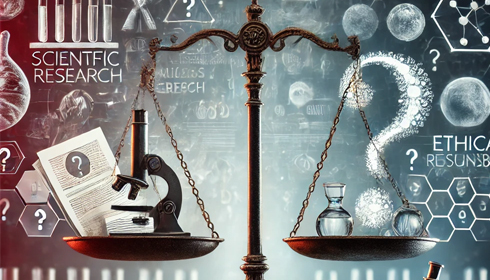
Hydroxychloroquine Scandal Deepens: Retraction of Study Highlights Ethical Breaches and Scientific Flaws
An investigation into ethical violations and problematic scientific methods has led to the official retraction of a significant study that sparked worldwide interest in hydroxychloroquine as a treatment for COVID-19. This reversal signifies a pivotal point in the continuing discussion surrounding research integrity during health emergencies.
In 2020, the International Journal of Antimicrobial Agents (IJAA) published a now-retracted article that suggested combining hydroxychloroquine with the antibiotic azithromycin could significantly reduce COVID-19 viral levels. Philippe Gautret and senior author Didier Raoult of the IHU Méditerranée Infection led the study, which raised high hopes. Prominent sponsorships, including those from then-US President Donald Trump, propelled the drug to international attention.
But issues arose almost right away. Critics cited the small sample size of 36 participants and the extremely short four-day peer-review period. Scientific integrity expert Elisabeth Bik led a subsequent inquiry that revealed the removal of six patients from the research, including one who died and three who required intensive care. Such exclusions skewed the findings, resulting in an incorrectly favorable estimate of the efficacy of hydroxychloroquine.
Elsevier's retraction notice, as well as the International Society of Antimicrobial Chemotherapy's, raise various ethical and methodological concerns. Investigators were unable to determine if patients had consented to experimental therapies or whether the trial had received proper ethical approval. Furthermore, co-author Jean-Marc Rolain, the editor-in-chief of IJAA at the time, raised serious concerns about editorial conflicts of interest.
Three writers openly criticized the article's approach and findings. With 32 publications deleted and 243 showing signals of concern, the retraction adds to an already concerning record for IHU writers.
This debate is representative of the larger hydroxychloroquine issue. Initially regarded as a potential game changer, the medicine was later dismissed after extensive research. It had no clinical advantage in treating COVID-19, and its broad use put patients at risk of serious complications, including cardiac difficulties.
The French Society of Pharmacology and Therapeutics described the now-retracted paper as the "cornerstone" of a scandal that endangered lives. The association emphasized the importance of the medical precept primum non nocere (first, do not damage) and stated that "even in times of health crisis, prescribing drugs without solid proof of efficacy remains unacceptable."
The article highlights significant issues in medical research, particularly in light of global crises. Inappropriate ethical control paired with the rapid publication of problematic data could have disastrous consequences. Although the COVID-19 epidemic necessitated expedited procedures, it also exposed flaws in scientific institutions, allowing erroneous conclusions to influence public health policy.
The retraction of the hydroxychloroquine trial serves as a warning tale. It highlights the significance of rigorous peer review, transparent ethical behavior, and compliance with approved clinical trial procedures. As global health emergencies become more regular, the scientific community must find a way to balance the need for speed with the demands for accuracy and integrity.
Policymakers, scientists, and clinicians can all benefit from this experience. Public health decisions must be based on strong data obtained from well-conducted investigations. Mistakes like this jeopardize patient safety while simultaneously undermining public trust in science.
The hydroxychloroquine episode serves as a sobering reminder that, even under pandemic conditions, research must be strictly ethical and evidence-based. Only with such dedication will the medical community be able to ensure public health and rebuild public trust in science.